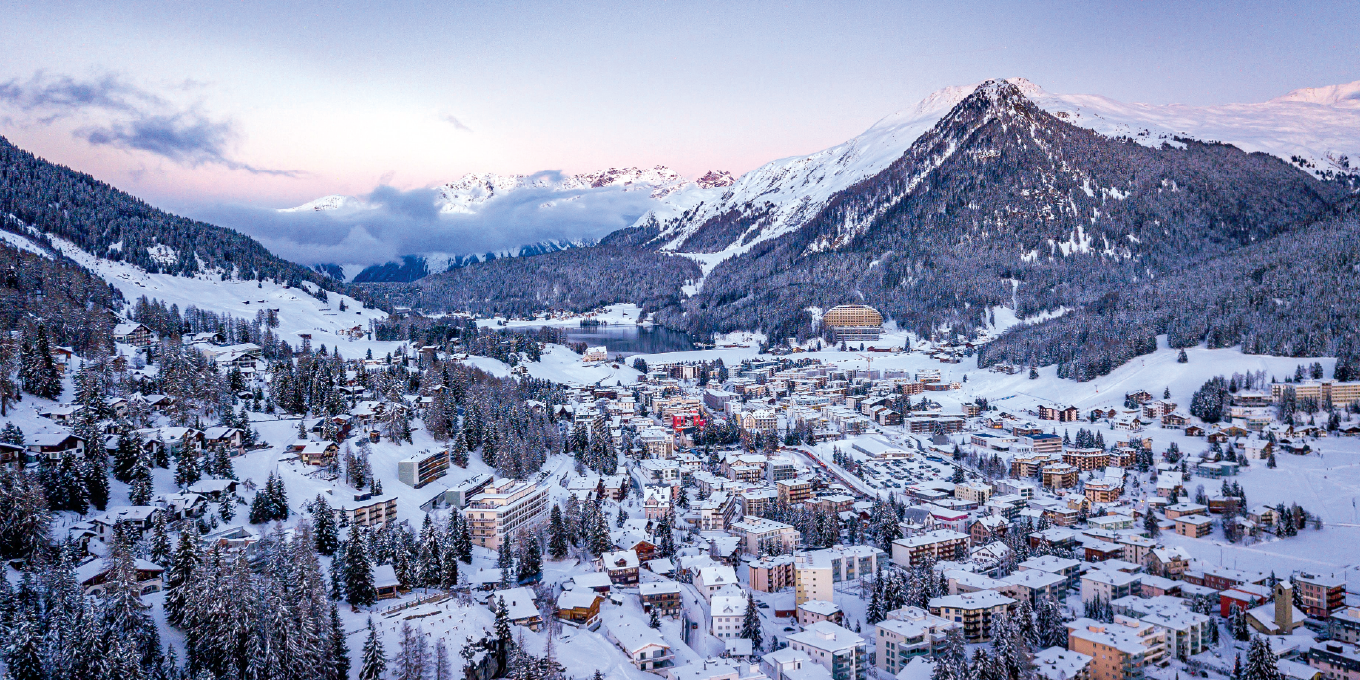Life and Love
How Heading to the Swiss Alps Helped to Mend My Broken Heart
In the early 1900s, thousands of tuberculosis patients were sent to the Swiss Alps on the premise that crisp, clean mountain air would help them heal. A century later, one writer headed to the magic mountains.
by : Isabel Slone- Mar 29th, 2023

DAMIAN MARKUTT / UNSPLASH
By the time I turned 33, I had become the kind of person who reads Eat, Pray, Love twice. Grasping onto anything I could for solace after the end of a five-year relationship, I could not outrun the sneaking suspicion that I had ruined my entire life. The breakup had occurred a year earlier, and despite reassurances that it “gets easier with time” and was maybe even “the right decision,” I couldn’t seem to erase the indelible mark this man had made on my life. My brain was a movie reel of tender memories, and I wept over the slightest things. Conversations with strangers frequently devolved into gentle suggestions that I seek therapy. I spent nearly every waking moment retracing my steps in a futile attempt to figure out where everything had gone wrong. It was like I had unwittingly hired a private detective to tail a criminal who was also…me.
As if that weren’t enough, four of my closest friends dropped out of my life one by one, either too busy or too weary to respond to my text messages. In the wake of these losses, grief rearranged my insides and I became a total stranger to myself. When my ex moved out, the precious quality that had made our apartment a home left with him, and no matter how often or how vigorously I rearranged my space, I felt like I was living in a museum exhibition of my former life. I needed an escape.
In the early 1900s, thousands of tuberculosis patients flocked to the Swiss Alps to convalesce on the premise that the crisp, clean mountain air was restorative for body and soul. The “rest-cure,” as immortalized in Thomas Mann’s 1924 novel, The Magic Mountain, about a young man who travels to visit his cousin at a tuberculosis sanatorium, involved plenty of leisure time, sunshine and fortifying Swiss milk products. Supposedly, the elevation and lack of humidity provided the ideal climate for lung patients to recover from their ailments. I began to wonder if inhaling this medicinal air would do the same for me.
“I felt like I was living in a museum exhibition of my former life. I needed an escape. ”
While I had previously dismissed the idea of travel as a balm for problems—remember the old adage “Wherever you go, there you are”?—I was willing to try anything in the hope that it would finally quell my lingering pain.
So, when a press trip to Switzerland came my way, I rejoiced, and before I knew it, I was on a red-eye flight to Zurich. How can I describe those first gulps of Swiss air without sounding like a laundry commercial? They were cold, pure and perhaps even a little sparkly.
In Zurich, I wandered around botanical gardens and paid eight Swiss francs to swim in the public baths, which left me feeling like I had just been baptized. In Basel, I absorbed the Renaissance art at the Kunsthalle gallery and wandered along medieval cobblestones in the touristy old town. The best part was the Hoosesagg (“pants pocket” in English) Museum, which is actually the window of a 600-year-old house filled with an array of tiny figurines small enough to fit in one’s pocket. But it wasn’t until I got to Davos, a place Mann referred to as “the solemn, phantasmagorical world of towering peaks,” that I felt my insides begin to shift.
My pain had stowed away in my carry-on luggage, imbuing each experience with a tinge of melancholy, but as soon as I caught my first glimpse of the fine mist rising to the top of the Alps—awe-inspiring and terrifying in equal measure—I knew I was ready for whatever lessons these mountains had in store.
I arrived to find that my room at the Waldhotel Davos—a former sanatorium converted into a luxury hotel—was the size of my entire apartment and had a private balcony, a floor-to- ceiling view of the forested Alps and a sunken living room. All in all, it was a rather comfortable setting in which to tend to my lacerated heart. (Mann’s wife, Katia, stayed at this very hotel while recuperating from tuberculosis in 1911.) I slipped into a fluffy robe and rode the dedicated “wellness elevator” down to the spa area, where I swam laps in the indoor pool—with a view of sheep nibbling serenely on the grass outside—until my mind went blank.
That evening, having achieved perfect tranquility, I fell into a familiar dream in which I pined for my lost love—only this time, my ex’s new girlfriend pulled me aside and explained that it made no sense for me to hold space in my heart for someone who no longer did the same for me. I realized that no amount of yearning was going to bring him back, so I might as well put an end to my pining.
The next morning, I awoke feeling significantly lighter, as if a psychic weight had been lifted. My morning milchkaffee on the balcony was so serene I could hear the flapping of a bird’s wings as it flew by. It wasn’t that I could begin to see my life getting better; it was that I understood that it already was. The switch was immediate.
The last stop on my Swiss healing pilgrimage was Bad Ragaz, home to an ancient hot spring rumoured to have medicinal properties. Ever since it was discovered in 1242, people have been drawn to it for its therapeutic effects, immersing themselves for up to 10 days in the hope that it would cure anything from paralysis to broken bones. At the Grand Hotel Quellenhof, the miraculous 36.5°C thermal water is piped in from four kilometres away so guests can luxuriate in what they call “blue gold.” The warmth of the water made me feel pleasantly drowsy. I bobbed in the pool for 30 minutes, and when I stepped out, my skin was surprisingly soft. I don’t know if my body released any toxins, but the rejuvenating effect was real.
In The Magic Mountain, Mann writes, “Time, we say, is Lethe [referring to the river in Hades from which the dead drink to forget their time on earth]; but change of air is a similar draught, and, if it works less thoroughly, does so more quickly.” Switzerland gave me the time and space to mend my battered soul, and I returned home with a renewed commitment to enjoying the life I have rather than craving the one I left behind.
Now, when I spend time alone in my apartment, I no longer feel stuck in a museum. Rather, I feel a tiny bit romantic about the life I’ve chosen. And when I forget, a poster from the Kirchner Museum in Davos that reads “The path to strength and health leads to Davos” is there to remind me.
Read more:
I Love Being Single
The Pandemic Has Brought Us Endless Swiping, But Has Made it Even Harder to Find Love
Should You Talk On The Phone Before A First Date?
Newsletter
Join our mailing list for the latest and biggest in fashion trends, beauty, culture and celebrity.
More from Life and Love
Read Next

Fashion
This Canadian Swimwear Brand Designed Canada’s 2024 Women’s Olympic Beach Volleyball Team Uniforms
And they're *so* good.
by : Allie Turner- Apr 24th, 2024
Fashion
The Most Iconic Looks In Met Gala History, From 1973 To Now
40 years of the night that's all about trailblazing fashion.
by : ELLE Australia- Apr 24th, 2024

Culture
This University Elevates Women to New Professional Heights
You shouldn’t have to pause your life to move forward in your career.
by : ELLE Canada- Apr 16th, 2024




